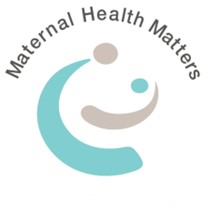Principles for maternity care – Still relevant today

The Government of Australia published the principles in 2011 and they are still relevant today
Maternity care should be evidence-based and woman-centred, and acknowledge pregnancy, birth and parenting as significant life events for women. Woman-centred maternity care is responsive to women’s needs and preferences, and enables them to access objective, evidence-based information that supports informed choices about their maternity care. Woman-centred care also requires service planning and provision that is designed and implemented to respond to the needs of Australian women within a safety and quality system.
A wellness paradigm
A wellness paradigm for pregnancy and childbirth acknowledges that pregnant women are predominantly well because pregnancy and birth are normal physiological life events. Clinical decisions about medical intervention should be informed by this understanding.
While acknowledging the desirability of a wellness paradigm, it must be recognised that the maternity system needs to provide for timely, urgent and unexpected escalation to higher levels of care. A study reported that 55% of women whose babies suffer perinatal death have no recognisable risk factors at the beginning of pregnancy, and 28% have none at the onset of labour.
The 10 Principles to underpin the provision of primary maternity care:
- Maternity care places the woman at the centre of her own care. Such care is coordinated according to the woman’s needs, including her cultural, emotional, psychosocial and clinical needs, close to where she lives.
- Maternity care enables all women and their families to make informed and timely choices in accordance with their individual needs. The planning and provision of maternity care is informed by women and their families.
- Women and families in rural and remote Australia have improved and sustainable access to high-quality, safe, evidence-based maternity care that incorporates access to appropriate medical care when complications arise.
- Governments and health services work to reduce the health inequalities faced by Aboriginal and Torres Strait Islander mothers and babies and other disadvantaged populations.
- Maternity services offer continuity of care across the pregnancy and birthing continuum as a key element of quality maternity care for all women and their babies.
- Maternity care will be provided for all women and their babies within a wellness paradigm, utilising primary health care principles while recognising the need to respond to emerging complications in an appropriate manner.
- The potential of maternity health professionals is maximised to enable the full scope of their specific knowledge, skills and attributes to contribute to women’s maternity care.
- Maternity services provide high-quality, safe, evidence-based maternity care within an expanded range of sustainable maternity care models.
- Maternity services are staffed by an appropriately trained and qualified maternity workforce sufficient to sustain contemporary evidence-based maternity care.
- Maternity services operate within a national system for monitoring performance and outcomes and guiding quality improvement
http://www.health.gov.au/internet/publications/publishing.nsf/Content/pacd-maternityservicesplan-toc~pacd-maternityservicesplan-chapter6
